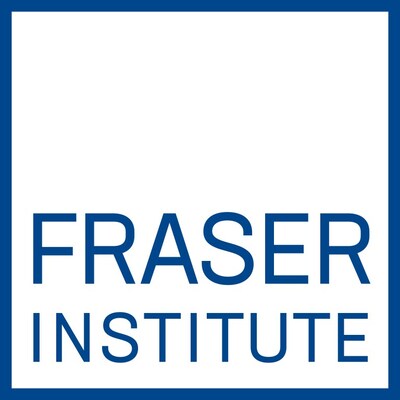TORONTO, Dec. 17, 2024 /CNW/ – Nearly 9-in-10 people in 165 countries around the World have experienced declining freedom in recent years, according to the latest Human Freedom Index, released today by Canada’s Fraser Institute and the U.S.-based Cato Institute.
“During the COVID pandemic, governments enacted extremely restrictive measures as a means to fight the spread of the disease and these measures clearly reduced most peoples’ freedom, which is a critical ingredient for a better life,” said Matthew D. Mitchell, Fraser Institute senior fellow and co-author of this year’s report.
The index measures the degree to which people are allowed to make their own personal and economic choices. To do so, it uses 86 indicators grouped into twelve areas including the rule of law, safety and security, identity and relationships (i.e. the freedom to choose your relationship partner), freedom of movement, speech, assembly, religion, freedom from taxes, regulations, and freedom to trade internationally.
This year’s report ranks 165 jurisdictions around the world. It finds that from 2019 to 2022 (the latest year of available data), 87.4 per cent of the world’s population experienced a decline in freedom.
Switzerland is once again the freest country, followed by New Zealand, Denmark, Luxembourg and Ireland. The five least-free countries are (in descending order) Sudan, Myanmar, Iran, Yemen and Syria.
Rankings for other significant countries include: Canada (11), Japan (12), Germany (14), United Kingdom and United States (tied at 17), Taiwan (19), France (34), Mexico (94), India (110), Russia (139) and China (150).
Hong Kong, which was the 3rd freest jurisdiction on Earth as recently as 2010, now ranks 50th on the Index.
Crucially, people in freer jurisdictions are more prosperous than those in less-free jurisdictions. For example, the average per-capita income for the top-quartile on the index was US$56,366 compared to US$15,826 for the least-free quartile in 2022. They are also more tolerant and charitable. They file more patents and publish more scientific papers. And they report that they are more satisfied with their lives.
“The evidence is clear—on average, freer people lead happier, healthier and wealthier lives,” Mitchell said.
The complete index, a joint project of the Fraser Institute and the Cato Institute, is available as a free PDF download at www.fraserinstitute.org. The co-authors of the report are Ian Vásquez of CATO, Matthew D. Mitchell, Ryan Murphy of the Bridwell Institute at SMU and CATO’s Guillermina Sutter Schneider.
The 10 freest and the least-free countries in 2022:
|
The 10 freest jurisdictions 1. Switzerland |
The 10 least-free jurisdictions 156. Iraq |
Follow the Fraser Institute on Twitter and Facebook
The Fraser Institute is an independent Canadian public policy research and educational organization with offices in Vancouver, Calgary, Toronto, Montreal and Halifax and ties to a global network of think-tanks in 87 countries. Its mission is to improve the quality of life for Canadians, their families and future generations by studying, measuring and broadly communicating the effects of government policies, entrepreneurship and choice on their well-being. To protect the Institute’s independence, it does not accept grants from governments or contracts for research. Visit www.fraserinstitute.org
SOURCE The Fraser Institute

Featured Image: Megapixl @ Noipornpan
















